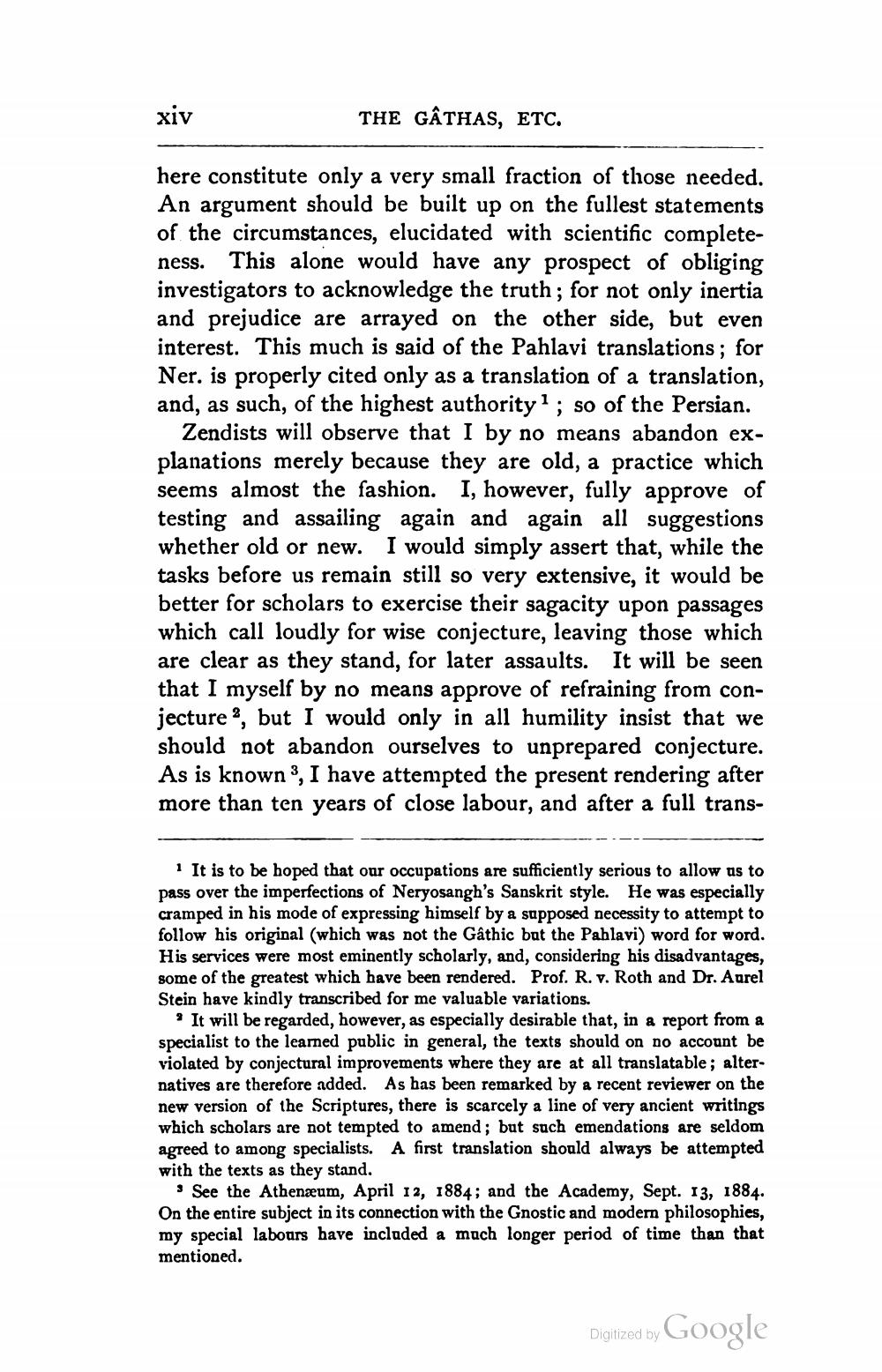________________
xiv
THE GÂTHAS, ETC.
here constitute only a very small fraction of those needed. An argument should be built up on the fullest statements of the circumstances, elucidated with scientific completeness. This alone would have any prospect of obliging investigators to acknowledge the truth; for not only inertia and prejudice are arrayed on the other side, but even interest. This much is said of the Pahlavi translations; for Ner. is properly cited only as a translation of a translation, and, as such, of the highest authority; so of the Persian.
Zendists will observe that I by no means abandon explanations merely because they are old, a practice which seems almost the fashion. I, however, fully approve of testing and assailing again and again all suggestions whether old or new. I would simply assert that, while the tasks before us remain still so very extensive, it would be better for scholars to exercise their sagacity upon passages which call loudly for wise conjecture, leaving those which are clear as they stand, for later assaults. It will be seen that I myself by no means approve of refraining from conjecture, but I would only in all humility insist that we should not abandon ourselves to unprepared conjecture. As is known 3, I have attempted the present rendering after more than ten years of close labour, and after a full trans
--
--
-
1 It is to be hoped that our occupations are sufficiently serious to allow as to pass over the imperfections of Neryosangh's Sanskrit style. He was especially cramped in his mode of expressing himself by a supposed necessity to attempt to follow his original (which was not the Gathic but the Pahlavi) word for word. His services were most eminently scholarly, and, considering his disadvantages, some of the greatest which have been rendered. Prof. R. v. Roth and Dr. Aurel Stein have kindly transcribed for me valuable variations.
It will be regarded, however, as especially desirable that, in a report from a specialist to the learned public in general, the texts should on no account be violated by conjectural improvements where they are at all translatable; alternatives are therefore added. As has been remarked by a recent reviewer on the new version of the Scriptures, there is scarcely a line of very ancient writings which scholars are not tempted to amend; but such emendations are seldom agreed to among specialists. A first translation should always be attempted with the texts as they stand.
See the Athenæum, April 12, 1884; and the Academy, Sept. 13, 1884. On the entire subject in its connection with the Gnostic and modern philosophies, my special labours have included a much longer period of time than that mentioned.
Digitized by
Digitized by Google




